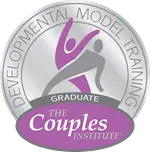The Gottman’s have several interventions based on decades of research. Three stick out in particular, and the Gottman’s agree they are among their favorite three and critical parts of the Gottman method of couples therapy. All of these interventions are designed to reduce conflict and improve communication. Wanting to improve communication is by far the number one reason couples come to see us (at least on the surface, that appears to be the issue, but there are often deeper causes). You can also read about five common communication problems. The following are three critical interventions.
Gentle Start-Up
The Gottman’s claim they can tell how well a conversation will go within three minutes of listening. I would contend that it’s often possible to make this determination in as little as 30 seconds. How the conversation starts can have a significant impact on how it ends. Do some of your conversations start with criticism, blaming, attacking, and contempt? Guess how well those usually go. A harsh start-up can make it difficult for the exchange to have a positive ending, leading to more relationship dissatisfaction. Putting the focus on yourself and how you feel while expressing a positive future need rather than what you don’t want can set the tone for a positive conversation. Clients learn to effectively use “I” statements to talk about their own needs instead of focusing on their partner’s flaws.
Dreams Within Conflict
Dreams Within Conflict is my (and Julie Gottman’s) favorite intervention. I particularly like this as a starting point because there is little room for error if you follow the rules. The Gottman’s have found that 69% of relationship problems are perpetual, meaning they will never totally disappear. These problems are often a result of differences in personality, upbringing, core values, and beliefs. The Dreams Within Conflict intervention is designed to help each person understand what makes an issue more significant than just how it seems on the surface.
An example is if one partner is concerned with getting meaningful birthday gifts. On the surface, that could sound somewhat shallow, but if one examines that the person never received gifts as a child and never felt their birthday was important to their parents, that can bring in a whole different level of meaning. This intervention gives the listener specific questions to ask without the opportunity to try and solve the problem, be defensive, or change the subject. While this form of communication is not natural, it is a great starting point, and some of the concepts can become natural with practice.
Gottman Rapoport
Another extraordinary intervention involves a distinct speaker and listener role. The challenge often falls on the listener, whose main job is to re-state what their partner said to their partner’s satisfaction. It is not about problem-solving; it is not about defending oneself. It is all about showing empathy and hearing what your partner says. This intervention is one of the most difficult for couples where defensiveness flows naturally. About 80% of couples find this intervention to be a game-changer. At the same time, the rest can’t let go of defensiveness, and the couple has to accept that if they want to stay together, they may spend a reasonable amount of time fighting, and often without resolution. A counselor can help make this intervention more successful, but it ultimately requires a strong desire to listen actively, pause, and take a breath before the listener gets a chance to be the speaker and tell their side of the story.
Determining Which Interventions to Use
The best way to determine which interventions will make the most sense for you is to take the Gottman Relationship Checklist with an approved Gottman-trained counselor. While extensive, this assessment targets your relationship’s particular needs, showing you and your Gottman therapist where to focus and what areas you can skip. While this post focuses on the Gottman Method of couples therapy, other techniques and tools can also be employed, such as the 5 love languages. There are additional interventions not from the Gottman’s. Combining parts of Emotionally Focused Therapy (EFT) with the Gottman Method can bring better techniques greater than the sum of its parts. You can also read a more comprehensive post about the Gottman Method of Couples therapy.







